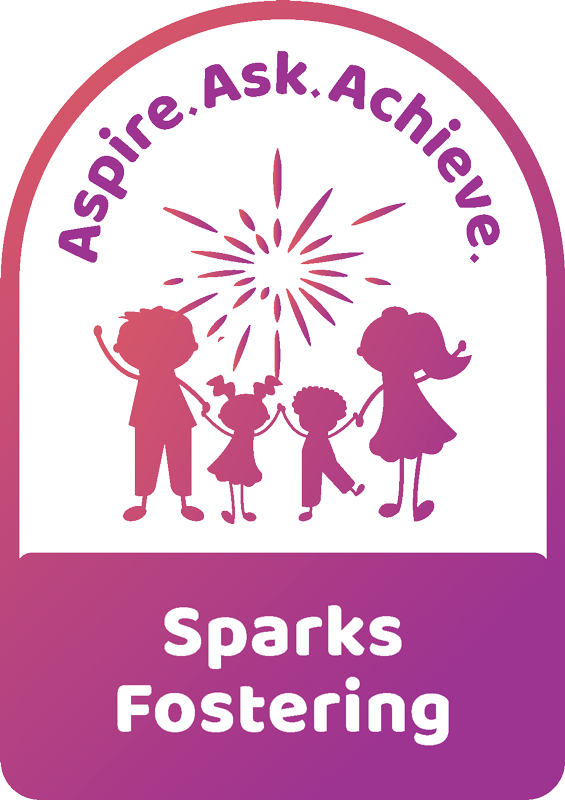Self Assessment And Benefits
Filing your accounts and claiming benefits
Employment status of foster carers
Foster carers are classed as self-employed. Foster carers must register as self-employed with HM Revenue and Customs before the next 5th October after the end of the tax year after approval. For example, if you started fostering in June 2023, the deadline to register was 5th April 2025. Registration is via this link: Register as self-employed. When you’re registered, you will be given a ‘Unique Taxpayer Reference’ (UTR).
Foster carers who are already registered as self-employed (through other employment) do not need to register again; however, they should inform HM Revenue and Customs that they have become foster carers.

Paying tax
Tax is a mandatory payment collected by the government to cover the costs of general government services such as the NHS, education, welfare services and for roads and rail services.
Qualifying care relief
Qualifying care relief is the amount of fostering income which isn’t taxable. It makes the system of tax calculation easy for foster carers: Rather than having to keep receipts to show how much of the fostering allowance has been spent on the children/residents, the qualifying care relief scheme gives £18,140 tax allowance per year after approval (pro rata) and also £375 per child each week under age 11 and £450 per individual (child or adult) each week over age 11 (figures correct in 2023). A week is counted as any part of a week between Monday to Sunday (so an emergency placement from a Saturday to Monday is counted as two weeks).
Qualifying care relief applies to foster care, staying put, parent and child and all other forms of foster care offered by Sparks Fostering.
Foster carers must complete an annual Self Assessment tax return even if no tax is to be paid (i.e. if the fostering income is lower than the qualifying care relief amount). Taxable income is taxed at 20% for all basic rate taxpayers.
Joint foster carers can decide whether to use their qualifying care relief allowance for one carer, or to split it between the two carers. That decision will depend on whether one or both foster carers have other income.
Foster carers may also wish to report the details of their fostering income and details of all fostering related expenses if they wish to (rather than apply for qualifying care relief).
National Insurance
National Insurance is another form of tax on earnings, and it helps to pay for some state benefits which are provided during times of unemployment, retirement, illness or bereavement. National Insurance is payable between ages 16 and retirement age.
National Insurance is paid by employers of employed people; whereas self-employed people (such as foster carers) pay National Insurance themselves, via the self-assessment tax returns.
There are four classes of National Insurance (figures accurate in 2023):
- Class 1 is paid by employees and employers (this does not apply to foster carers)
- Class 2 is paid if you’re self-employed (this applies to foster carers who earn at least £6,725 a year)
- Class 3 is a voluntary contribution. This may be paid by foster carers who aren’t required to pay Class 2 contributions, if they wish to continue to build a UK state pension.
- Class 4 is paid in addition to Class 2 payments, by foster carers who have taxable fostering income over £12,570 a year.
To qualify for some UK state benefits (such as a pension), you need to have paid or been credited with a certain amount of National Insurance Credits. It is possible to check your National Insurance record online – click here for further information.
Self-assessment tax returns
Tax returns are submitted for tax years (not calendar years) which end on 5th April.
Deadlines (and further information) for tax returns are outlined on the HM Revenue and Customs website – click here for further information.
If you fail to meet one or more of these deadlines, you might be charged a penalty fee and interest on late payments.

Claiming benefits
Benefits which are linked to National Insurance contributions include:
- Jobseeker’s allowance (JSA) – Foster carers who don’t have a child with them under a fostering arrangement can claim JSA, but they would also be expected to look for work for a minimum of 16 hours/week. Sparks Fostering would need to be consulted before accepting any new employment, to ensure that it wouldn’t affect the carer’s availability for children requiring a foster home.
- Employment Support Allowance (ESA)
- Retirement Pension
- Widows Pension
- Maternity Benefits
Means-tested benefits (linked to your income) include:
- Parents Learning Allowance (this is for full-time students who have children, so is unlikely to apply to foster carers)
- Child benefit/tax credit – Children who are under fostering arrangements aren’t eligible for this, but the foster carer’s ‘own’ children are.
- Income Support/Working Tax Credit – Foster carers can choose whether to be deemed as ‘working’, and claim working tax credit, or ‘not working’ and claim income support (which is the usual choice for single foster carers). The income from fostering is ignored when calculating income support.
- Housing Benefit – Fostering income is ignored when calculating housing benefit. Also, approved foster carers in private rented property can get one extra bedroom in their local housing allowance rate, up to four bedrooms in the home (even when there are no children being cared for under fostering arrangements).
- Council Tax Benefit/Reduction – all income from fostering is ignored when calculating council tax benefits.
Non-contributory benefits (i.e. not means-tested) include:
- Disability Living Allowance (DLA)
- Personal Independence Payment
- Attendance Allowance (this is given to people who need support with their own care needs, so is unlikely to apply to foster carers)
- Universal Credit – all income from fostering is ignored when calculating universal credit.
If foster carers are unclear about whether they are entitled to any benefits, they may wish to read about benefits calculators on this website (click here).
The charity ‘Turn to Us’ also has some useful information and a benefit calculator – click here for more information.
Annual fostering summary
Sparks Fostering carers do not need to worry about getting the data together for their tax returns; Sparks Fostering will provide foster carers with a statement after the tax year which outlines all the payments made to foster carers and how many weeks the foster carer has been providing care to the child.
Expert advice
HM Revenue and Customs have provided a range of videos and live webinars to help people with Self Assessment – click here to see the HMRC information.
Foster carers are invited to approach Sparks Fostering if further support is required with tax and benefits, so that appropriate support can be offered.







